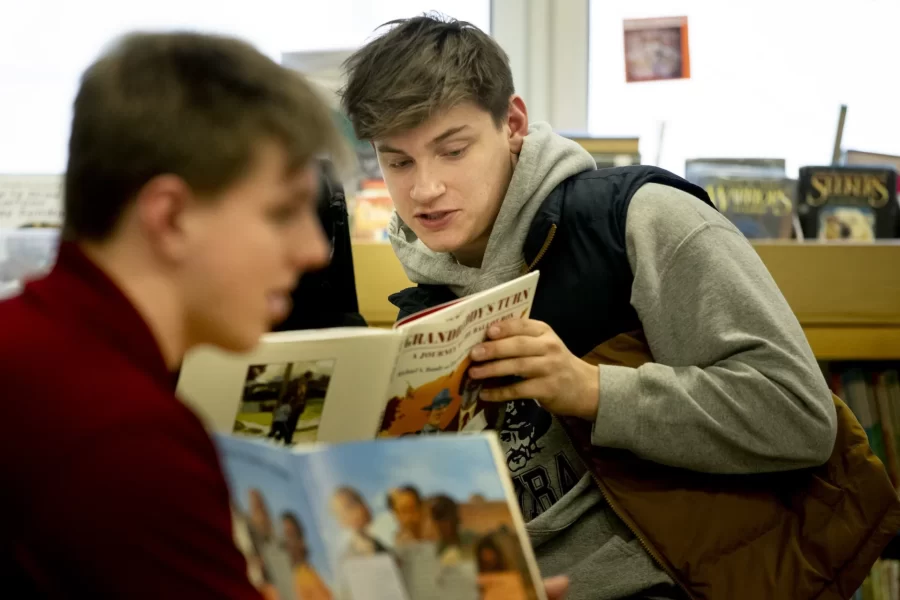The Bates College Department of Education seeks to foster the democratic possibilities of schooling through the study of education in the United States and internationally.
Minor The Bates Department of Education offers two minors in education: Teacher Education and Educational Studies. For both minors, students are required to take EDUC 231 (Perspectives on Education). This course introduces students to the field through foundational perspectives that stimulate further interest in education; it is open to first-year students. Students interested in declaring a minor in education are encouraged to come to information sessions offered twice during the academic year and to make appointments with education faculty for early planning and advisement.
Interdisciplinary Studies
Students may propose individual majors that cross one or more boundaries of the college’s established fields of study. A self-designed interdisciplinary major requires a detailed academic program with a list of courses to be included in the major drawn from at least two departments or programs, and one senior thesis (INDS 457, 458), capstone project, or comprehensive examination.
Further guidelines and an application for the individual interdisciplinary major are available from the registrar. Proposals for interdisciplinary majors must be submitted to the registrar for approval by the Curriculum Review Committee by March 1 in the sophomore year. Proposals must include a faculty advisory board of at least three faculty members who have agreed collectively to act as major advisors. One of these faculty members also serves as thesis advisor unless the student’s program includes an alternative capstone project or comprehensive examination. A student with an individual interdisciplinary major graduates with a degree in interdisciplinary studies.
General Education
A minor in either teacher education or educational studies may count toward the major-plus-one or major-plus-two requirements. In addition, two interdisciplinary general education concentrations include education department courses:
Children, Adolescents, School (C030)with courses from education and psychology
Learning and Teaching (C084) intended for students who wish explore teaching without committing to the teacher education minor

Lewiston Middle School students participate in a WriteIn! Program on May 20, 2024, with with Bates student tutors from the Bates Student Writing and Language Center.
These two classes of LMS students taught by LMS English teacher Elizabeth Arlene were led in a creative writing exercise in Hathorn Hall by Bates students George Miller and Amy XX?? And Ahige Api ’27 and Lexi Inter ’26. The activity was called Scriblish where one person started a story by writing one line and passing it along for a total of five writers (or you could add a drawing) until a story was completed and read aloud to the group.

Associate Professor of Education Mara Tieken, winner of the 2024 Kroepsch Teaching Award, teaches students in her course “EDUC 231 – Perspectives on Education” in Pettigrew 30 on January 16, 2025.
EDUC 231 – Perspectives on Education
This course introduces students to foundational perspectives (anthropological, historical, philosophical, psychological, and sociological) on education and helps students apply these perspectives to contemporary schools and classrooms. The course considers several large questions: What should be the purpose of education in a democratic society? What should be the role of the school? Who should participate in making decisions about schools? In what ways do schools reflect and perpetuate larger social inequities, and, alternately, how can they contribute to a more just and inclusive society? Students must complete at least thirty hours of fieldwork.


Associate Professor of Education Mara Tieken, winner of the 2024 Kroepsch Teaching Award, teaches students in her course “EDUC 231 – Perspectives on Education” in Pettigrew 30 on January 16, 2025.
EDUC 231 – Perspectives on Education
This course introduces students to foundational perspectives (anthropological, historical, philosophical, psychological, and sociological) on education and helps students apply these perspectives to contemporary schools and classrooms. The course considers several large questions: What should be the purpose of education in a democratic society? What should be the role of the school? Who should participate in making decisions about schools? In what ways do schools reflect and perpetuate larger social inequities, and, alternately, how can they contribute to a more just and inclusive society? Students must complete at least thirty hours of fieldwork.




